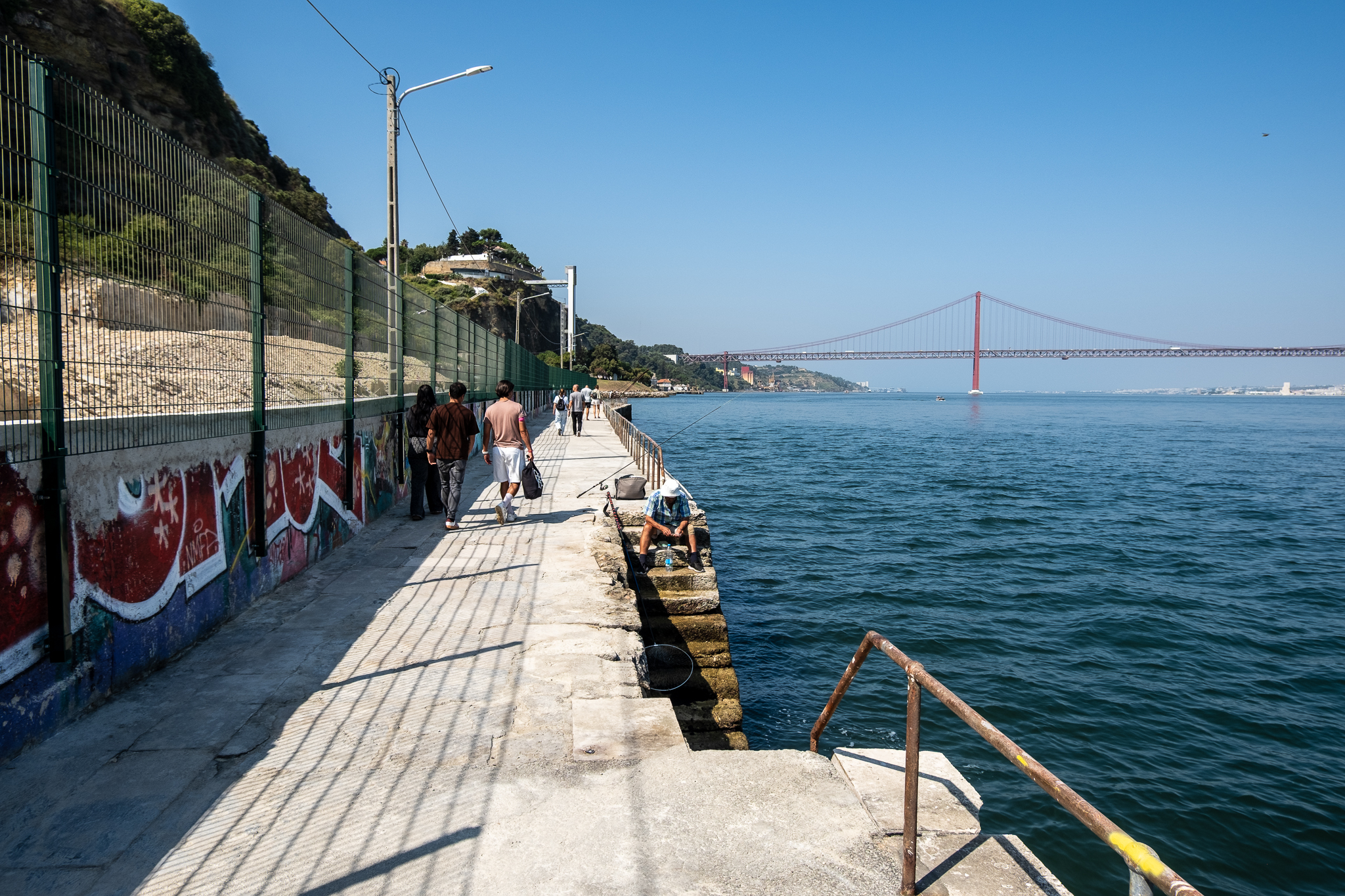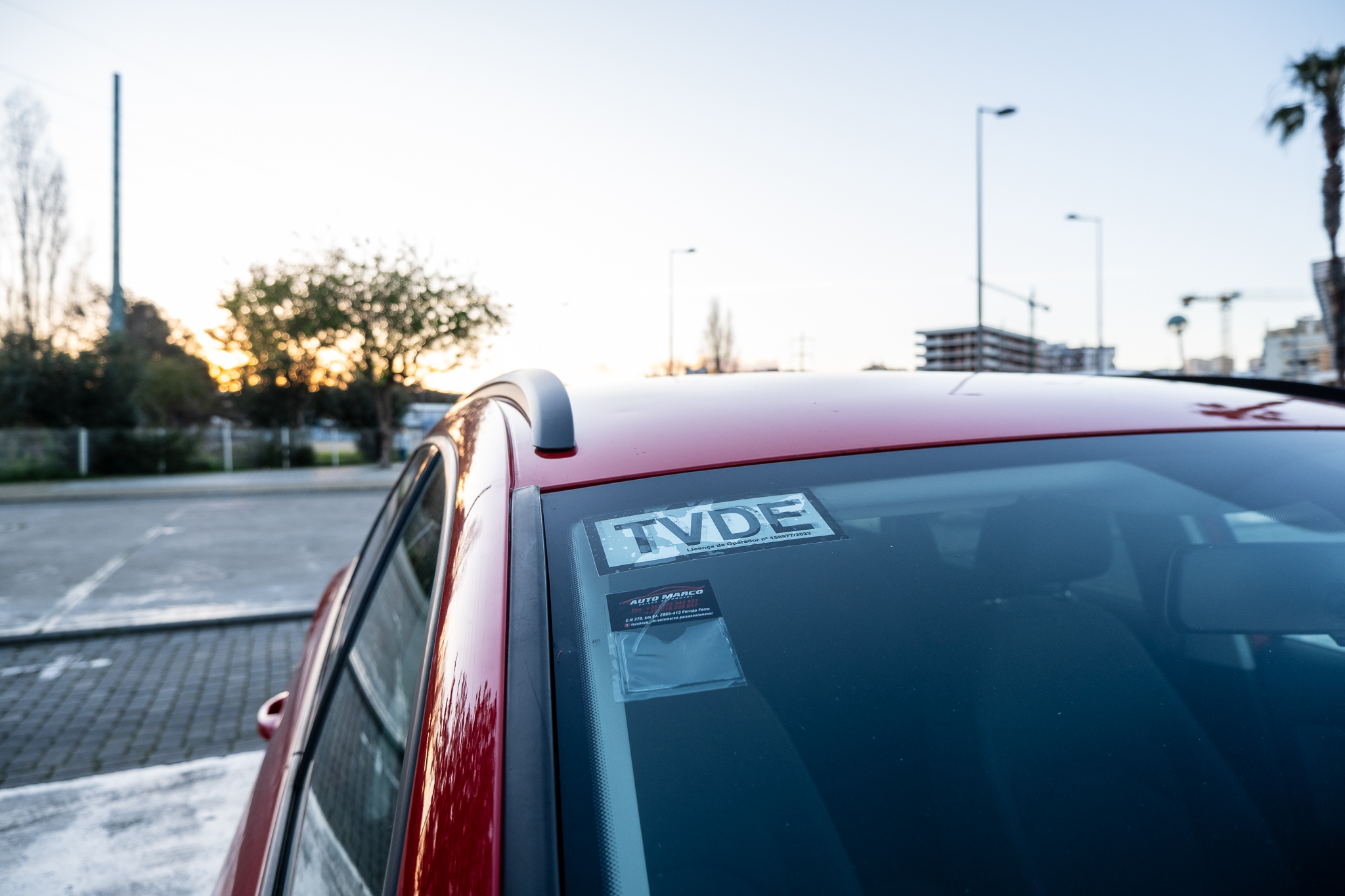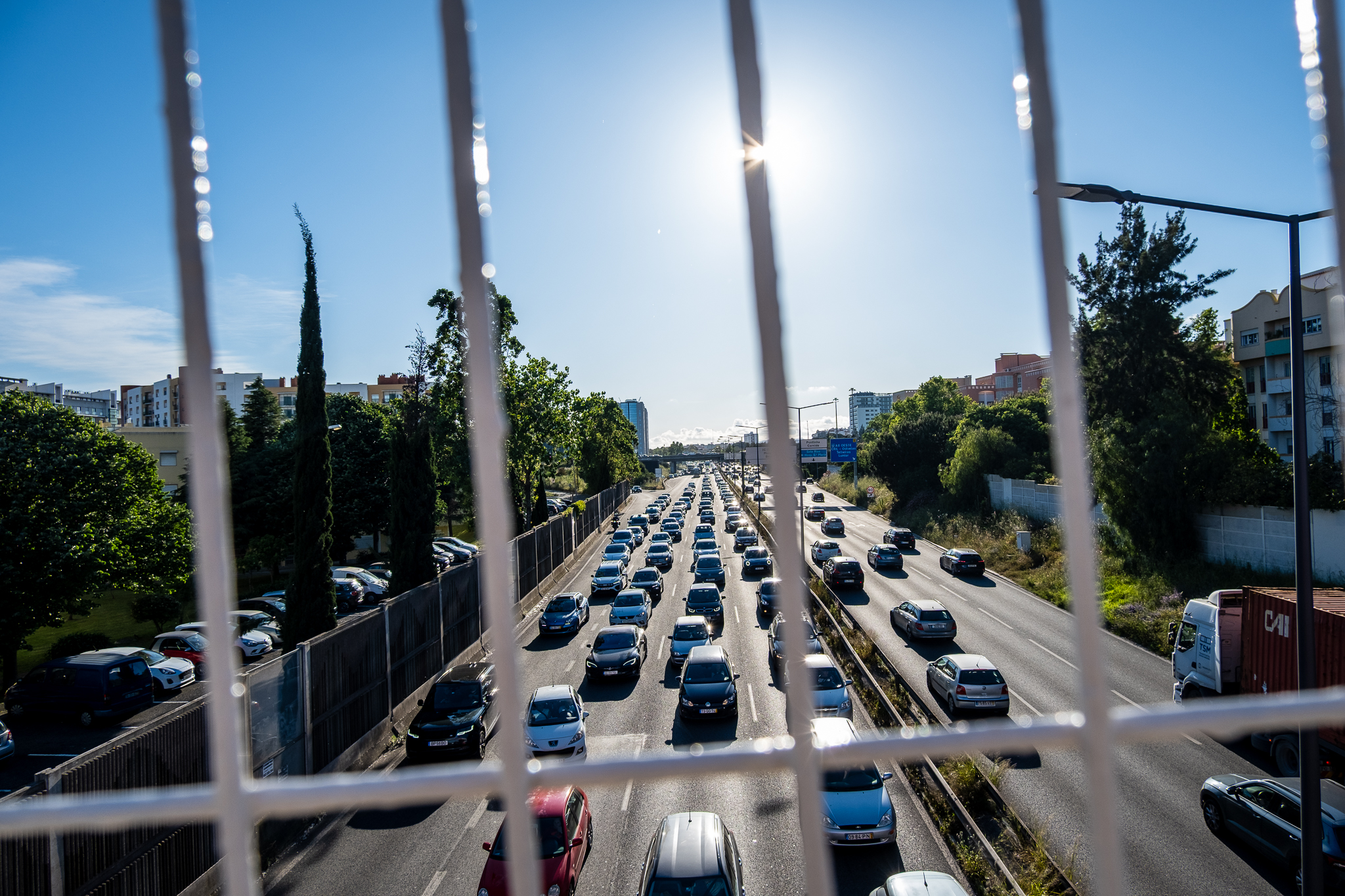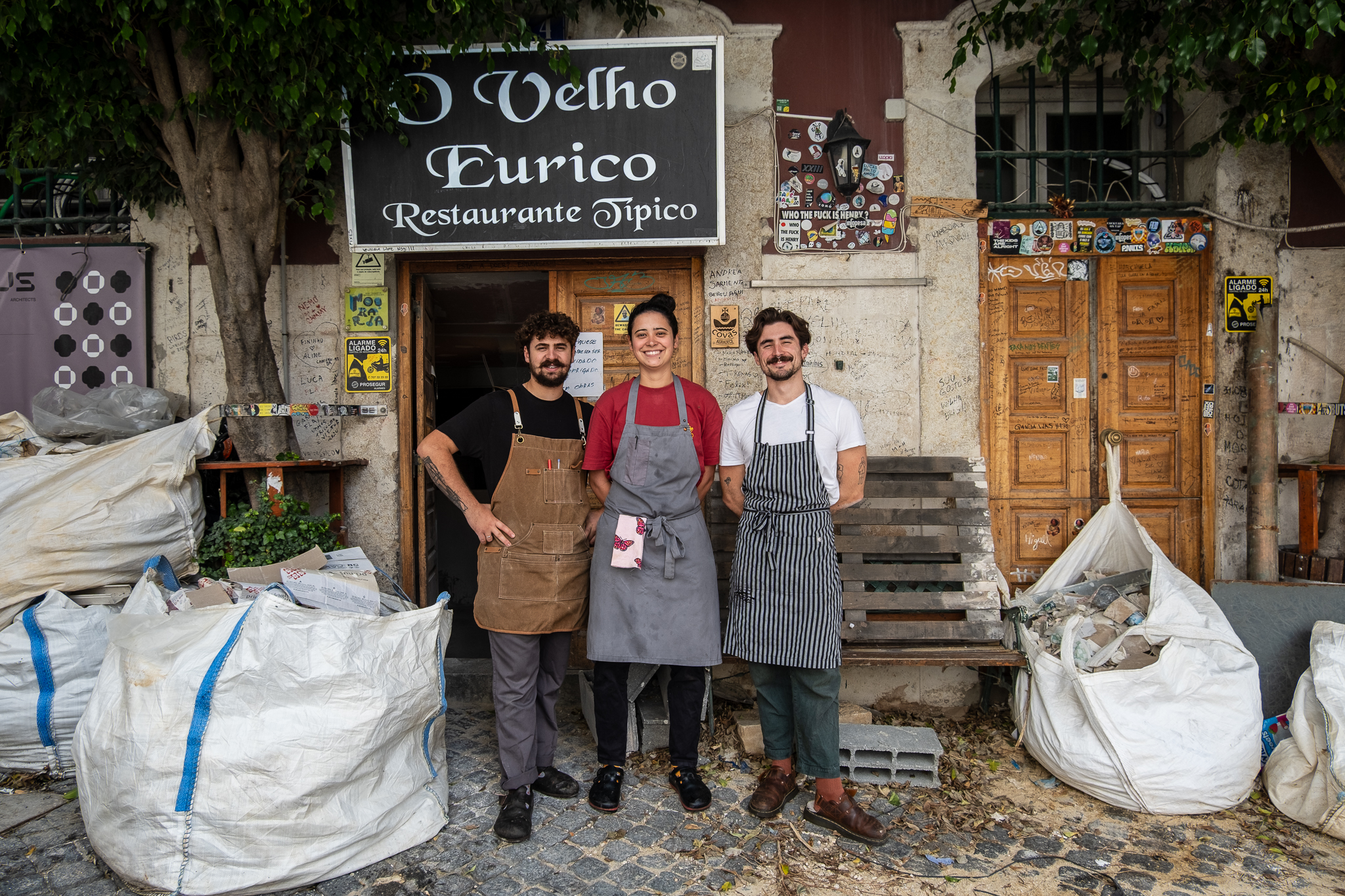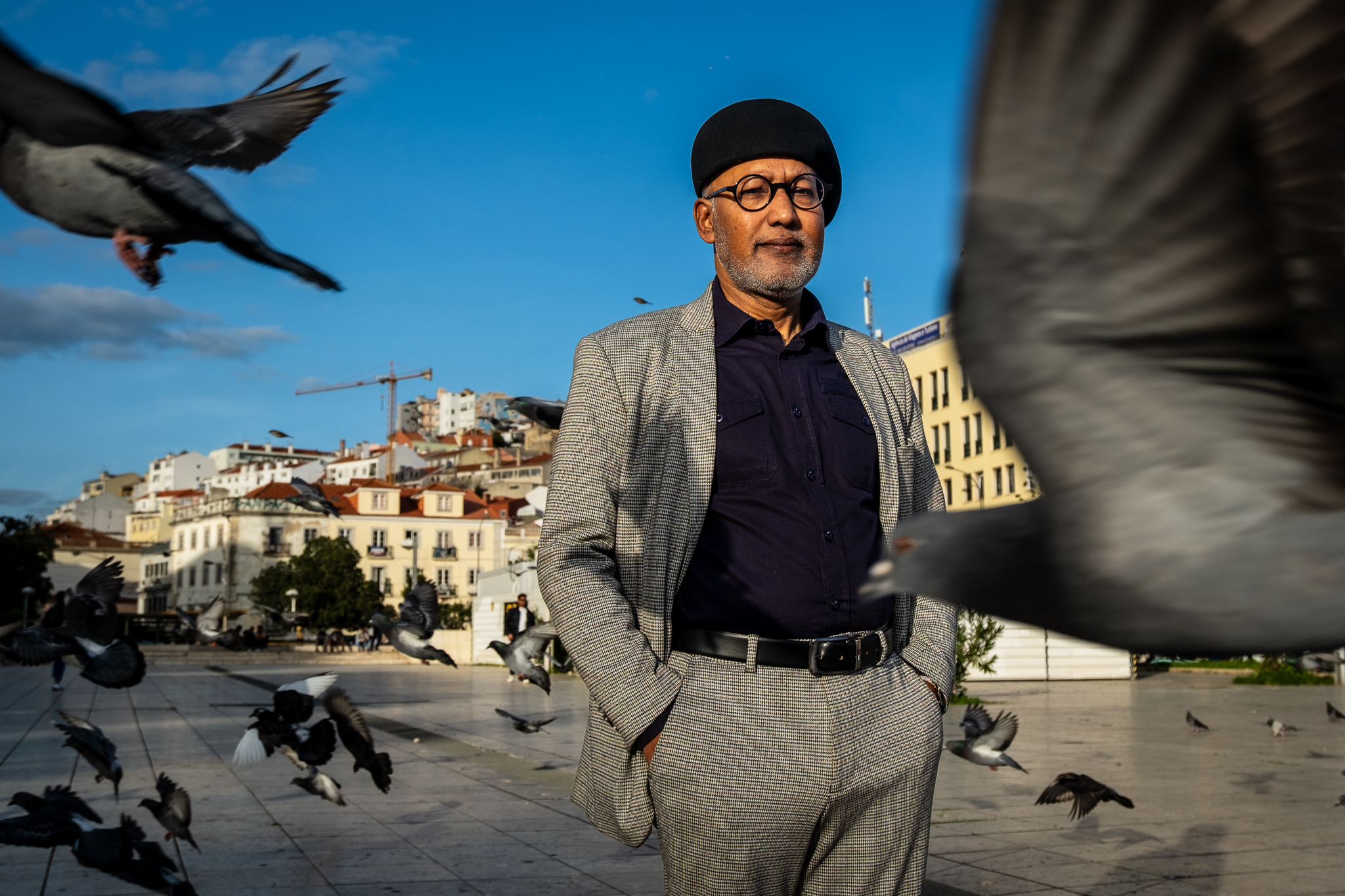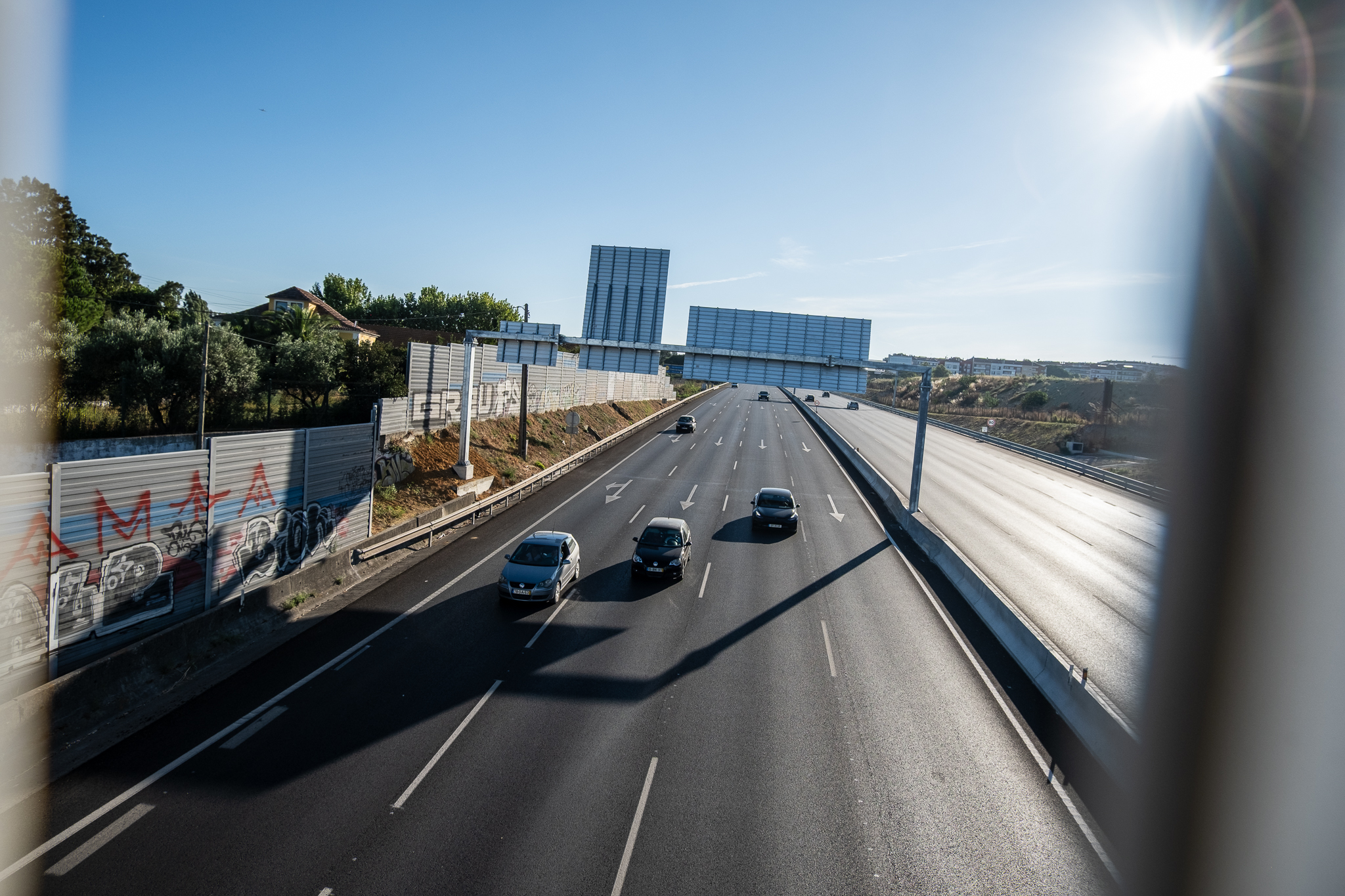The Almada City Hall, the parish councils and TML have promoted several public and participative sessions about Carris Metropolitana, with the objective of hearing the frustrations and suggestions of the population.
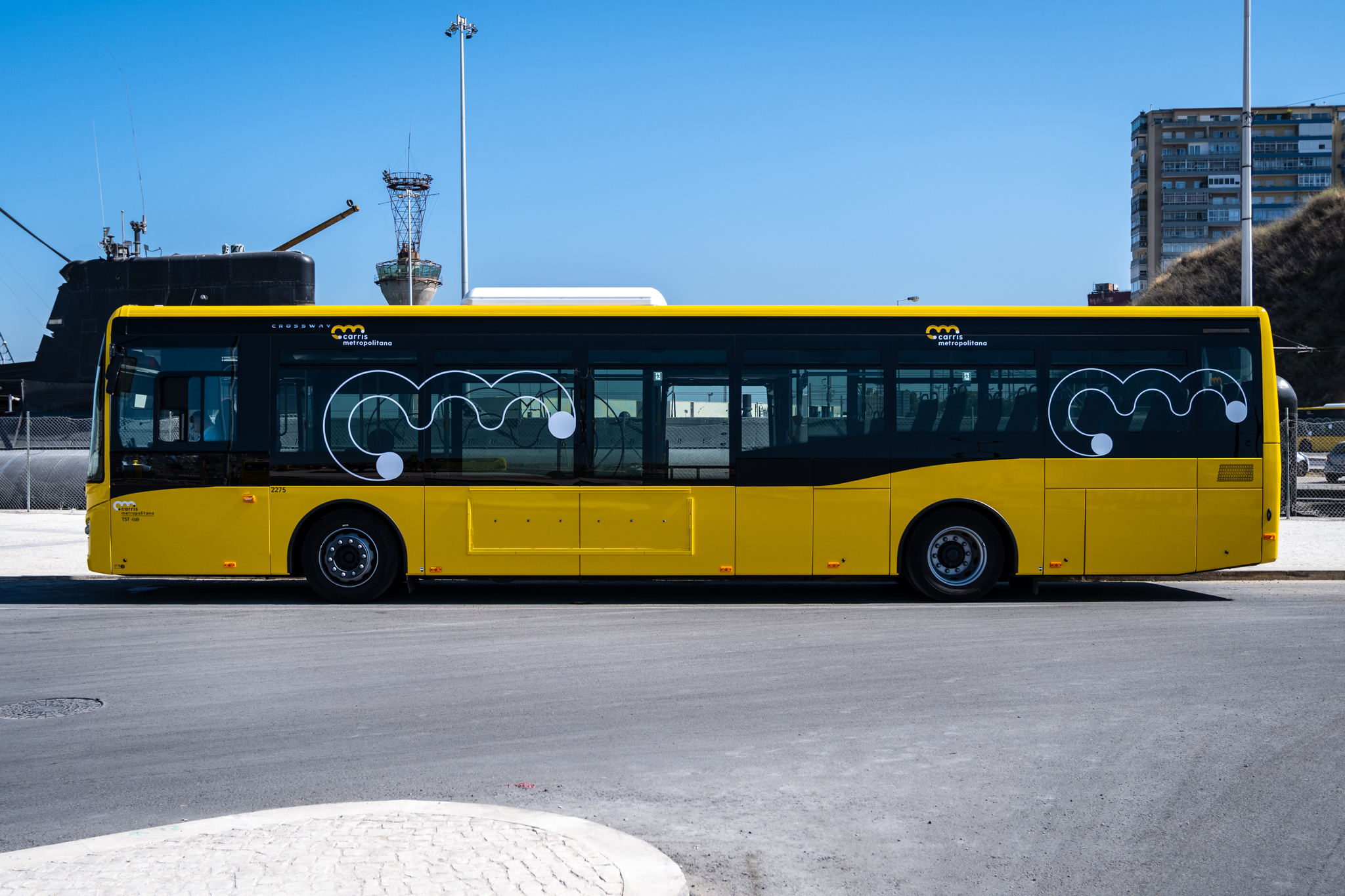
Friday, July 22nd, mid-afternoon. Partial strike day at TTSL, with the last boat leaving Cais do Sodré for Cacilhas at 4:30 pm and the river traffic only returning at 8 pm. We cross the Tagus in 10 minutes on a half-full ferry. In Cacilhas, there are works to reorganize that intermodal terminal and create a new riverside promenade. At the surface metro station, several passengers pile up waiting for a train that is late in not arriving. Around them, several yellow buses of the new Carris Metropolitana are arriving and leaving. There are more than a dozen stops of Carris Metropolitana in Cacilhas, all of them identified with a yellow pole and numbering of the lines. But none with a shelter to protect passengers from the sun, which, on that hot afternoon, was scorching.
Getting off the boat it is not easy to figure out which bus to take. The line numbers at the stops are useless for those who don't know the service. We used the CityMapper application to figure out the best bus to get to our destination - there were several and we chose the one that would leave the fastest. It was not easy to figure out which stop we had to be at, even though we had a digital assistant. We found it, and in a few minutes the bus appeared. It was a new one and still smelled like it; the validator didn't work (it said "out of service"), so the trip was free. With the help of CityMapper, we were able to figure out which stop to get off at.
The trip went well. Every time a new passenger got on, the driver indicated that the validator was not working and to just get on. The air conditioning cooled us down on a hot day, there was free wi-fi and USB outlets to charge the cell phone if we wanted. We were riding outside of Lisbon on a Metropolitan Carris bus operated by TST, but the on board experience was familiar to us as Carris users. We didn't have an inferior bus, nor to understand a different fare. It was as if we were at home, even though we weren't, and even though Carris and Carris Metropolitana are totally different companies.
The launch of Carris Metropolitana (CM) was promised to us as a great revolution in transport in the Lisbon Metropolitan Area (AML), but the promised revolution has taken longer than the initial expectations. After a trouble-filled start in Area 4 (involving the municipality of Setúbal) on the first day of June, CM reached Area 3 (which includes the municipality of Almada) a month later. It thus operates in the entire AML South Bank, with the launch on the North Shore postponed until January 1, 2023.
Almada and Sesimbra to correct problems with TML and the populations
In the municipalities of Area 3 (Almada, Seixal and Sesimbra), the arrival of the CM was not peaceful either, but the existing problems are being corrected in conjunction with the respective municipalities. In Almada, for example, five public and participative sessions were organized so that Transportes Metropolitanos de Lisboa (TML) - responsible for the operation of the CM - could listen directly to the population. The sessions were promoted by Almada City Hall in each of the five parishes of the municipality, and were attended by TML. The objective was to listen to the frustrations and suggestions of the population, and to try to solve their problems with adjustments to the Metropolitan Carris' offer.
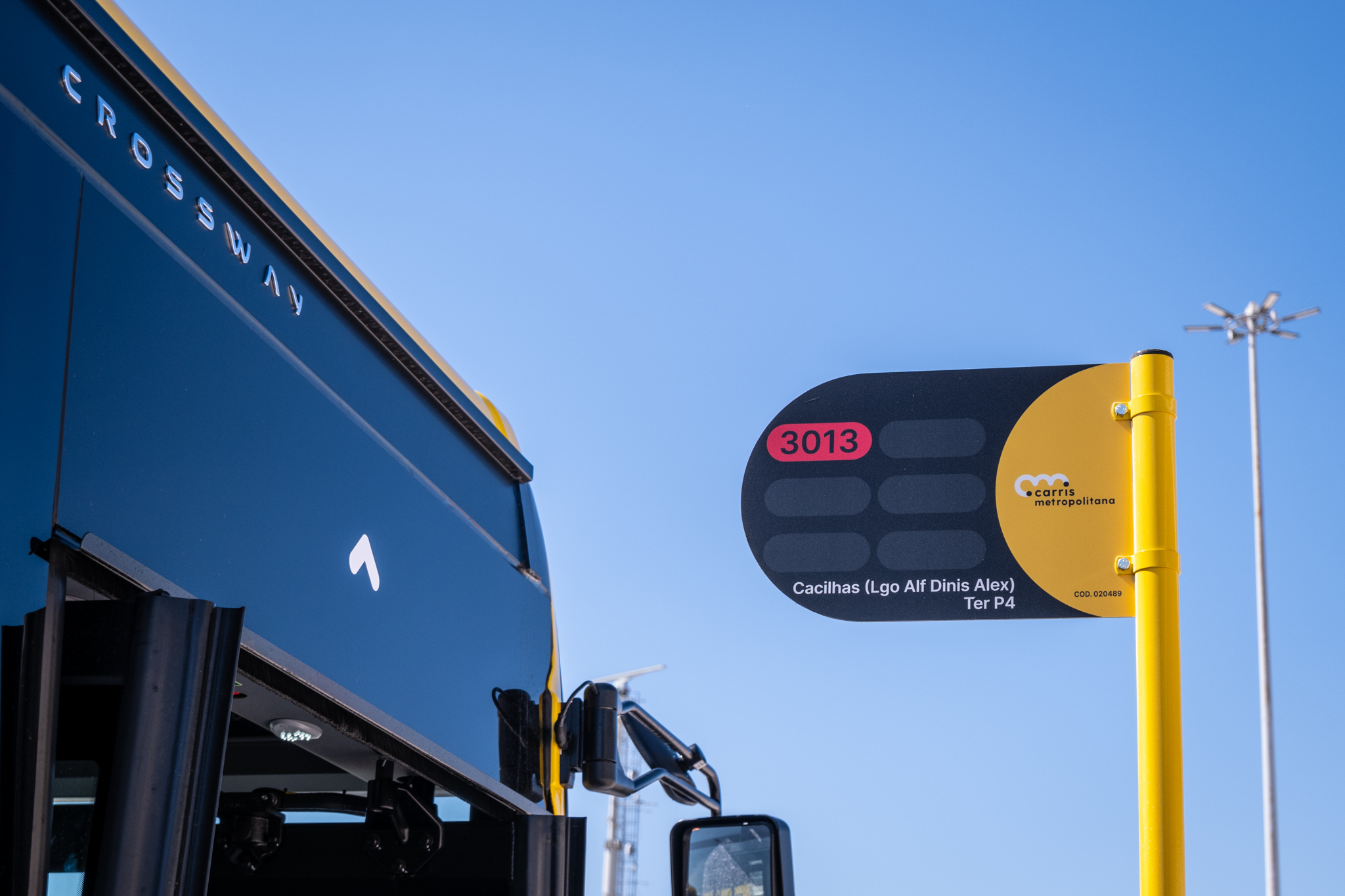
Since the beginning of the operation, and also as a result of passenger pressure, 11 lines have already been reinforced, with more timetables and/or route changes. The changes were intended to meet demand, offering more circulations not only on weekdays but also on weekends and holidays, better combining schedules with rail and river transport, and making routes that will be more meaningful to the population. The reinforced lines were the following:
- 3009 - Cacilhas (terminal) Trafaria (terminal)
- 3015 - Charneca da Caparica Cova do Vapor
- 3011 - Cacilhas (terminal) Costa da Caparica
- 3012 - Cacilhas (terminal) Fonte da Telha
- 3014 - Cacilhas (terminal) Raposeira (Trafaria)
- 3021 - Costa da Caparica Monte da Caparica (FCT)
- 3022 - Pragal (HGO) Costa da Caparica (terminal)
- 3030 - Monte da Caparica (FCT) Fonte da Telha (beach)
- 3034 - Quinta do Texugo Porto Brandão
- 3507 - Cacilhas (terminal) Marisol
- 3710 - Costa da Caparica (terminal) Lisbon (Sete Rios)
The City of Almada organized a section on your site dedicated to Carris Metropolitana and an e-mail sugestoes.carris@cma.m-almada.pt to more easily receive feedback from the users of the new transport service and forward it to TML. These tools complement the official channels of the CM: contacto@carrismetropolitana.pt e 210 418 800.
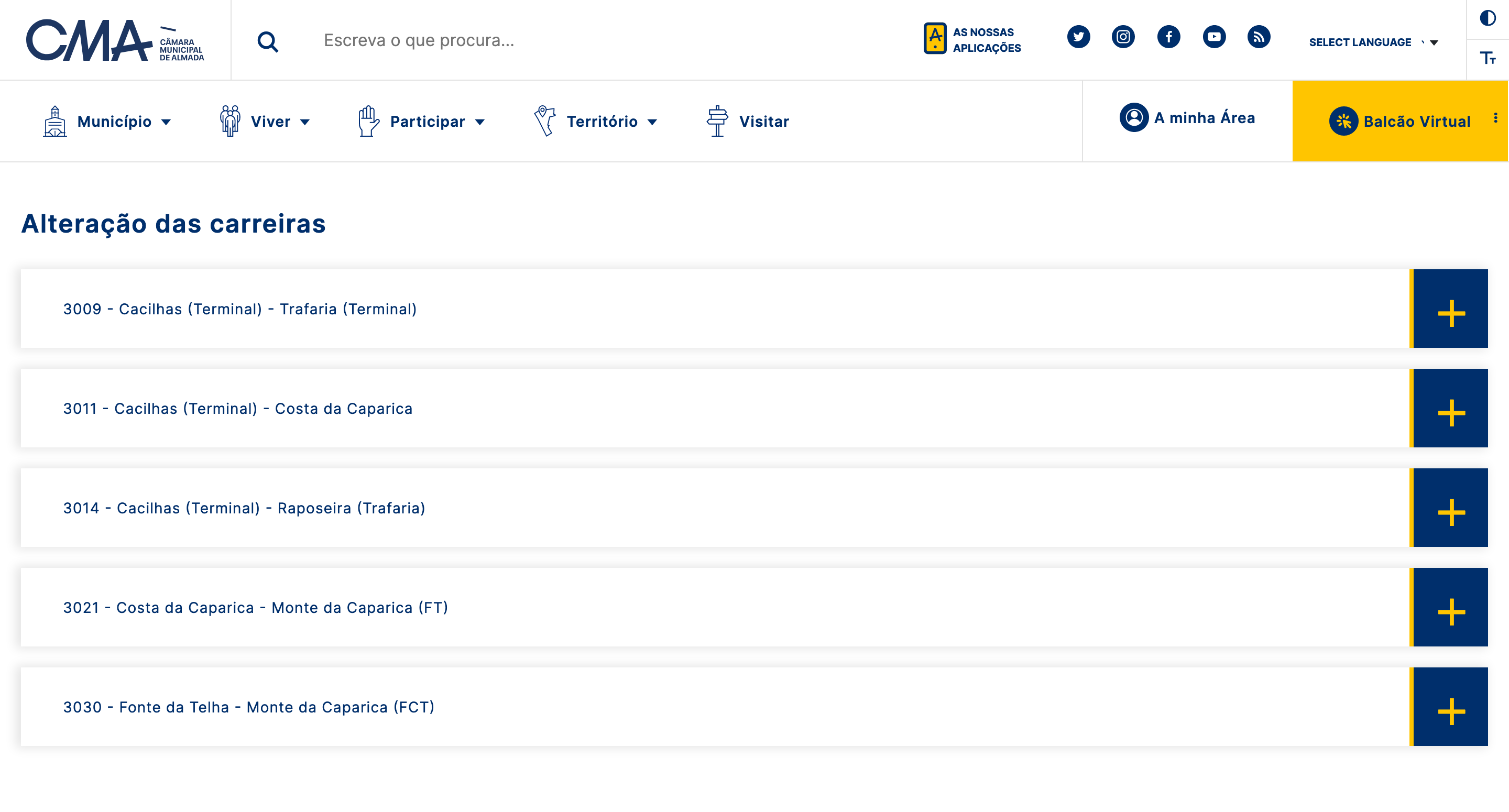
The almadense autarchy has not been the only one to request improvements to the CM service; in neighboring Sesimbra, which is also part of Area 3 of operation, line 3543 was recently changed to pass through the interior of Quinta do Conde. According to the municipalitythe objective was "serve main streets with a greater affluence of passengers, passing through routes where the old Sulfertagus 2N line used to circulate". and responding to a request from the autarky itself in the very first days of the new operator.
"Since July 1, when Carris Metropolitana began to circulate, the City Council, in close collaboration with TML, TST, and also based on the opinions and suggestions that have arrived from users, has been making adjustments to the lines in force so that there is a more effective response to the public transport needs of the population. The identification of the most pertinent cases, as well as their assessment and possible correction will continue in the coming days"The Sesimbra City Hall also announced. On the Seixal side, there is no public communication from the respective City Hall about changes to the CM service.
A warm room without water
The journey we began to describe at the beginning of this article culminated at the Romeu Correia Municipal Forum, right in the center of Almada. This was the place chosen for the fourth public and participative session on Carris Metropolitana, which concerns the Parish Councils of Almada, Cova da Piedade, Pragal and Cacilhas. It is 6pm. The interested audience - mostly an older population - filled a hot room, where there was no air conditioning and where only water was distributed to the members of the TML, the municipality and the parish. The windows were opened in an attempt to cool the space, but only the fans that people brought from home or improvised saved from the heat. Inês de Medeiros, Mayor of Almada (CMA), was present; on TML's side were Sónia Alegre and Rui Lopo, the company's directors.

Inês de Medeiros opened the session thanking everyone for their presence - "you are fulfilling an act of citizenship here with your civic participation" - and asked them to be concrete and succinct in their interventions so that everyone could speak. The participations were grouped into groups of 10 and in the middle answers were given by both the Mayor and TML. Inês de Medeiros considered the launching of Carris Metropolitana "a great victory" after a work that will have started, behind the scenes, in 2016, but stressed to be "frustrating for us, [policy makers]" the fact that people "don't feel the results yet". "This is the time to look at what is [in operation] and try to correct it"because public transportation "messes with the professional and personal lives of each of us". "We know that in some cases there is breach of contract and that in other cases there are adjustments that need to be made."
The Mayor of Almada pointed out that there is a big difference between the current public transportation regime, managed by a public company - in which all municipalities of AML participate - and the previous model, in which private operators could manage supply and fares autonomously. "TML accepted, from the very first hour, to put on its face and respond to people. TST would never be here. That's the difference."Inês de Medeiros added that, although TST operates Carris Metropolitana in Area 3, the operation is now TML's responsibility, which defines the lines, the routes and the fares; TST is only responsible for running and getting paid for each kilometer traveled.
Even before people spoke, TML introduced himself and assured everyone beforehand that everyone present was right. "We are mostly here to listen and correct the situations you are all going through"said Rui Lopo, making it clear that "there is no financial reason" for the Metropolitan Carris service not to exist as it is contracted to TST. "It's not about saving money. These are mistakes that have to be corrected."he said. Rui Lopo informed that the labor issues between the workers and the company that led to problems at the start of the operation in Area 4 have been resolved and that the service "is not yet optimal" but has already undergone a major improvement. "Here [in Area 3] we have other difficulties", e "we will demand the fulfillment of the contract" to TST.
From a pass that doesn't work to buses that don't go where they shouldn't go
The session in Almada allowed to understand what will be the main concerns of the users of Carris Metropolitana. Some people questioned the current offer for Cristo Rei, saying it is insufficient for both tourists and the resident population. "Why hourly buses when there is so much tourism? We look like animals inside them".questioned one lady. "What's this about 'school hours' and 'non-school hours'? Who's doing worse? Is it the kids or is it us?"added another gentleman, referring to his older age.
There have been complaints about buses being full and therefore not stopping at stops - "the buses are not sized to run outside of Lisbon. They are small and full".one passenger lamented, referring to the urban rather than suburban dimension of some vehicles. Some people criticized the lack of supply at night. "those who work shifts and leave at midnight have no buses". There was also talk about the need for better interconnection with other operators. Some interveners asked about the routes of some lines, mentioning that they pass through areas where there is no demand. "if there are no houses, there are no people"one person summarized.
"It takes me an hour or an hour and a half to get home or to work. And we still have to cross dangerous roads and wait in the sun because there are no shelters."asked another participant. This issue of lack of shade at the stops was repeated throughout the session, as many stops of Carris Metropolitana only have a yellow pole indicating the number of lines and, in some, also the posted schedules. One gentleman, for example, lamented the lack of shelters and shade at the Cacilhas stops - something that we, Lisboa Para Pessoas, also felt on the trip we took.
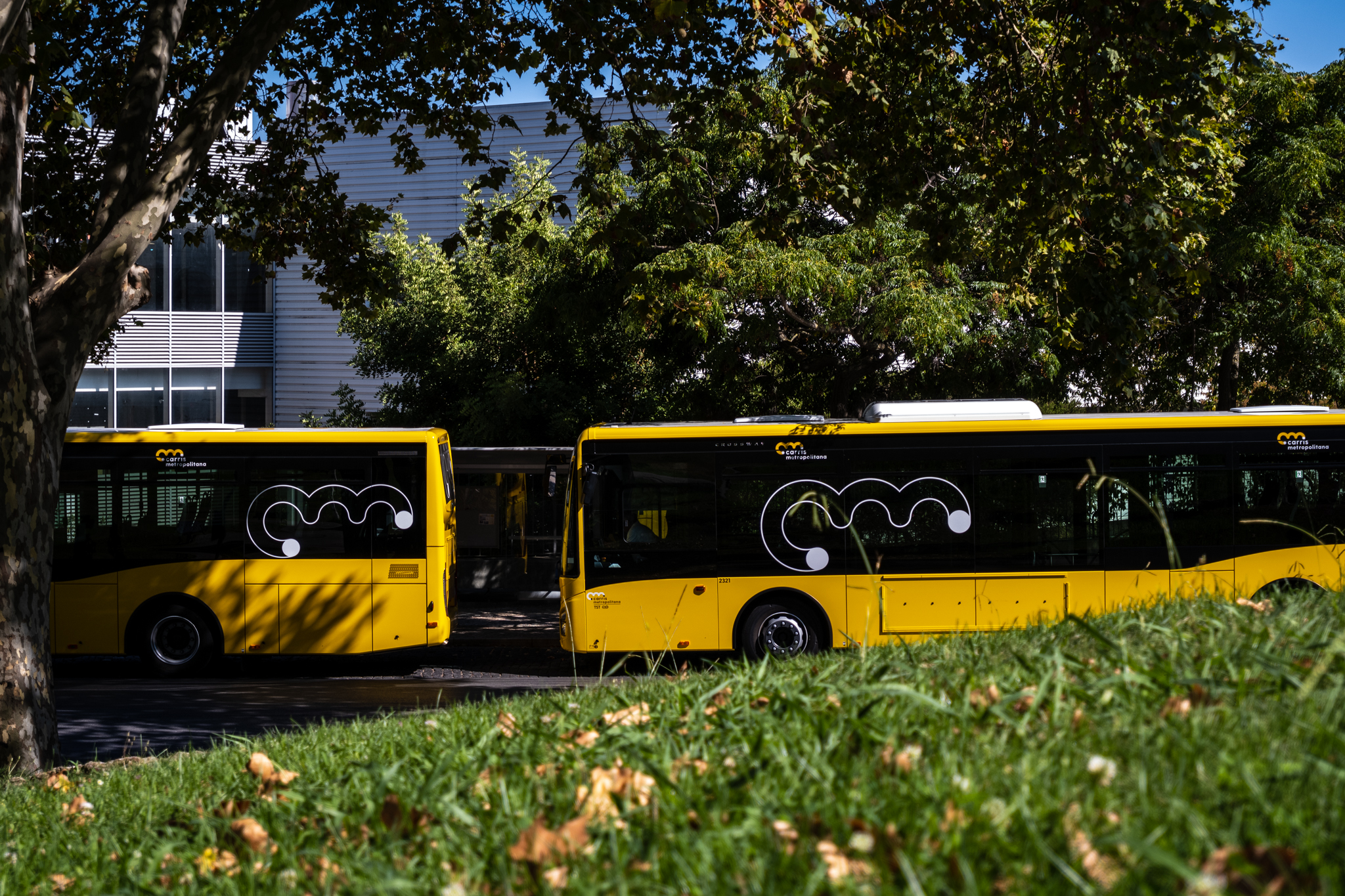
"Everything stayed the same, maybe a little worse. We had hoped it would be better."one lady lamented, adding that some schedules are "village" and not from a big city like Almada: "at 18 it ends and on the weekend there is no". Another lady complained about the offer to the beach, namely to Costa da Caparica. "It is a fact that I don't have to punch the clock on the beach but it is a right I have"he said, alluding to the importance of leisure for people's lives. "The 9 to Coast fast track never exists. If it's not to be, they might as well take it away." and thus do not generate false expectations.
There were, however, some who recognized that Carris Metropolitana's service "it's already getting a little better". An official from Almada's Senior University welcomed a visible "concern to fix things" and made himself available to help in this regard. "I will create an ad doc group at the University to understand the concerns of our students"she announced, explaining that the idea is also to come up with practical suggestions. One lady welcomed the new fleet: "I have never seen so much new bus"he said. "It used to be only old things that came to Almada. Now I can get on and off [the bus] easily. Thank you very much, it's not all bad." In another speech, a gentleman decided to remind the audience of what public road transport used to be like, saying that he has seen buses with broken doors, where it rained inside or "until it burns". And he made an appeal to estimate the new vehicles: "These new buses in the hands of TST are going to the scrap heap early, they won't last long."
Several participants regretted that these sessions had not been held earlier. "These sessions should have been done years ago to know people's needs"One gentleman said, adding that speed and convenience are the most important factors in designing a public transportation network. “We have to get cars off the road and we have to get cars off the bridge"he said."Did you ever think how many cars you were going to take off the road and how much you were going to improve air quality?" when the Metropolitan Carris was planned, he asked, mentioning that on the way to Fórum it took an hour and a half, of which 30 minutes just from Pragal, where he says he saw eight buses stopped and no subway leaving in 15 minutes - by car it would be a journey of less than 10 minutes.
Another participant stated, in my line of reasoning, that Carris Metropolitana is "a revolution that should have happened many years ago" and recalled the recent conquest of the Navegante social pass (30 euros / 40 euros a month). But this revolution, he added, "it has to be done with the people and these meetings should have been done longer ago, so we wouldn't be here commenting on basic things". "I don't drive and I don't have a car"said the same speaker. "This has to be a revolution that will serve us in everyday life"He also said that he no longer has the direct bus that he used to have to visit a relative, but has to take three different transports.
The TML representatives and Inês de Medeiros were listening to the participants and taking notes. The Mayor of Almada had with her a big dossier where all the lines of Carris Metropolitana in the district were printed. She showed willingness to solve the different problems and, for example, about the lack of shadows, she informed that "we are only now in a position to launch public tenders for shelters"because "it was complicated to launch without having the network stabilized". In relation to Cacilhas, he indicated that it may be considered the installation of temporary shelters that would later be changed to permanent ones, after the works that are now underway in that intermodal terminal, where river, road and rail (surface metro) transport are combined. About the offer to the Coast he said that "must be clearly reinforced in the summer".
Rui Lopo, from TML, informed that "every revolution has its processes" and lamented "very, very" all the inconveniences the CM is causing in the lives of those present and everyone else. "None of these situations were desirable." Announced that line 3022 "will return to its previous course"but that for now only one will be made "increased circulations". Lopo explained that it is necessary to evaluate the response capacity of the TST, which operates the CM in Almada and the remaining Area 3, because "sometimes TSTs can't respond right away" to supply increases or changes. "The most important thing is expectation management" and so I didn't want to risk advancing dates for changes to the 3022 or other lines.
TML and CMA officials promoted, this Tuesday, a fifth and last public session. The Metropolitan Carris service should be more stabilized as of September and the 100% only on January 1, 2023, along with the launch on the North Shore.






